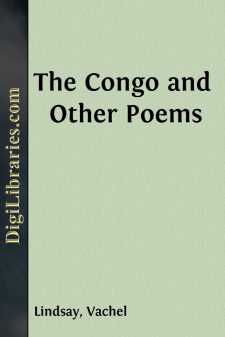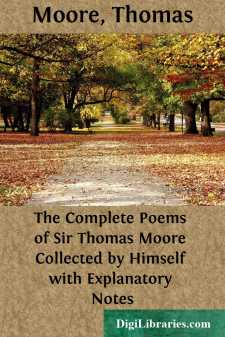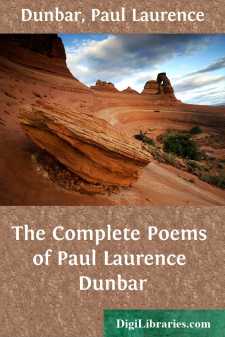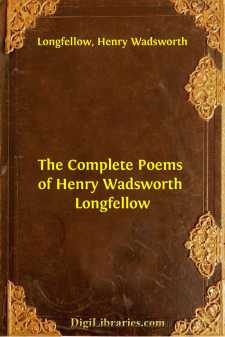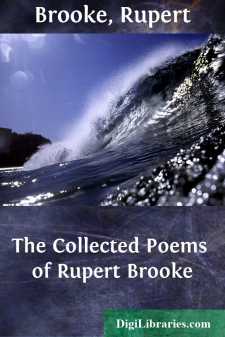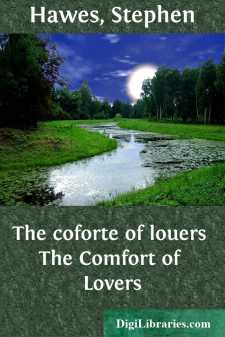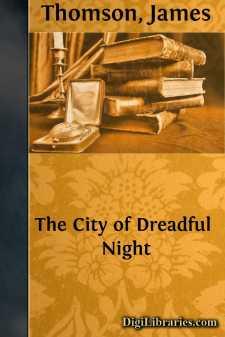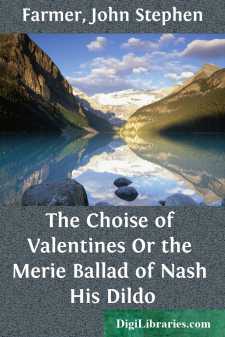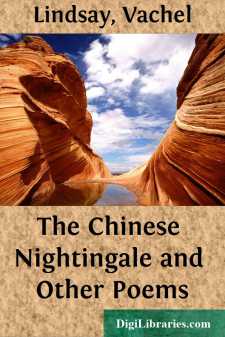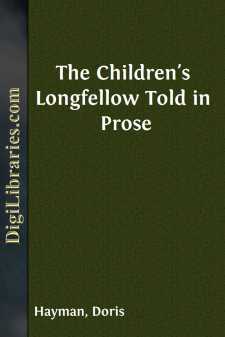Poetry Books
Sort by:
by:
Vachel Lindsay
The Congo A Study of the Negro Race I. Their Basic Savagery Fat black bucks in a wine-barrel room,Barrel-house kings, with feet unstable, A deep rolling bass. Sagged and reeled and pounded on the table,Pounded on the table,Beat an empty barrel with the handle of a broom,Hard as they were able,Boom, boom, BOOM,With a silk umbrella and the handle of a broom,Boomlay, boomlay, boomlay, BOOM.THEN I had...
more...
by:
Thomas Moore
THOMAS MOORE Thomas Moore was born in Dublin on the 28th of May 1780. Both his parents were Roman-Catholics; and he was, as a matter of course, brought up in the same religion, and adhered to it—not perhaps with any extreme zeal—throughout his life. His father was a decent tradesman, a grocer and spirit-retailer—or "spirit-grocer," as the business is termed in Ireland. Thomas received his...
more...
I think I should scarcely trouble the reader with a special appeal in behalf of this book, if it had not specially appealed to me for reasons apart from the author's race, origin, and condition. The world is too old now, and I find myself too much of its mood, to care for the work of a poet because he is black, because his father and mother were slaves, because he was, before and after he began to...
more...
VOICES OF THE NIGHT <Greek poem here—Euripides.> PRELUDE. Pleasant it was, when woods were green, And winds were soft and low,To lie amid some sylvan scene.Where, the long drooping boughs between,Shadows dark and sunlight sheen Alternate come and go; Or where the denser grove receives No sunlight from above,But the dark foliage interweavesIn one unbroken roof of leaves,Underneath whose...
more...
by:
Rupert Brooke
Rupert Brooke was both fair to see and winning in his ways. There was at the first contact both bloom and charm; and most of all there was life. To use the word his friends describe him by, he was "vivid". This vitality, though manifold in expression, is felt primarily in his sensations — surprise mingled with delight — "One after one, like tasting a sweet food." This is life's...
more...
by:
Stephen Hawes
Some do endyte / vpon good moralyte Of chyualrous actes / done in antyquyte Whose fables and storyes ben pastymes pleasaunt To lordes and ladyes / as is theyr lykynge Dyuers to moralyte / ben oft attendaunt And many delyte to rede of louynge Youth loueth aduenture / pleasure and lykynge Aege foloweth polycy / sadnesse and prudence Thus they do dyffre / eche in experyence I lytell or nought / experte in...
more...
by:
James Thomson
PROEM Lo, thus, as prostrate, "In the dust I writeMy heart's deep languor and my soul's sad tears."Yet why evoke the spectres of black nightTo blot the sunshine of exultant years?Why disinter dead faith from mouldering hidden? 5Why break the seals of mute despair unbidden,And wail life's discords into careless ears? Because a cold rage seizes one at whilesTo show the bitter old...
more...
INTRODUCTION. Nash's "CHOISE OF VALENTINES" has apparently come down to us only in manuscript form. It is extremely doubtful (Oldys notwithstanding), whether the poem was ever before accorded the dignity of print. Nor would it now be deemed worthy of such were the only considerations those of literary merit or intrinsic value: truth to tell there is little of either to recommend it. But,...
more...
by:
Vachel Lindsay
The Chinese Nightingale Second Section America Watching the War, August, 1914, to April, 1917 Where Is the Real Non-resistant? Here's to the Mice! When Bryan Speaks To Jane Addams at the Hague I. Speak Now for Peace II. Tolstoi Is Plowing Yet The Tale of the Tiger Tree The Merciful Hand Third Section America at War with Germany, Beginning April, 1917 Our...
more...
by:
Doris Hayman
LONGFELLOW'S POEMS IN PROSE he home of the American poet, Henry Wadsworth Longfellow, during the greater part of his life was in the picturesque town of Cambridge, Massachusetts, and there many of his best known poems were written. The forge of the Village Blacksmith really stood there beneath the shelter of a "spreading chestnut tree," in Cambridge, and when, as the town grew larger, the...
more...


